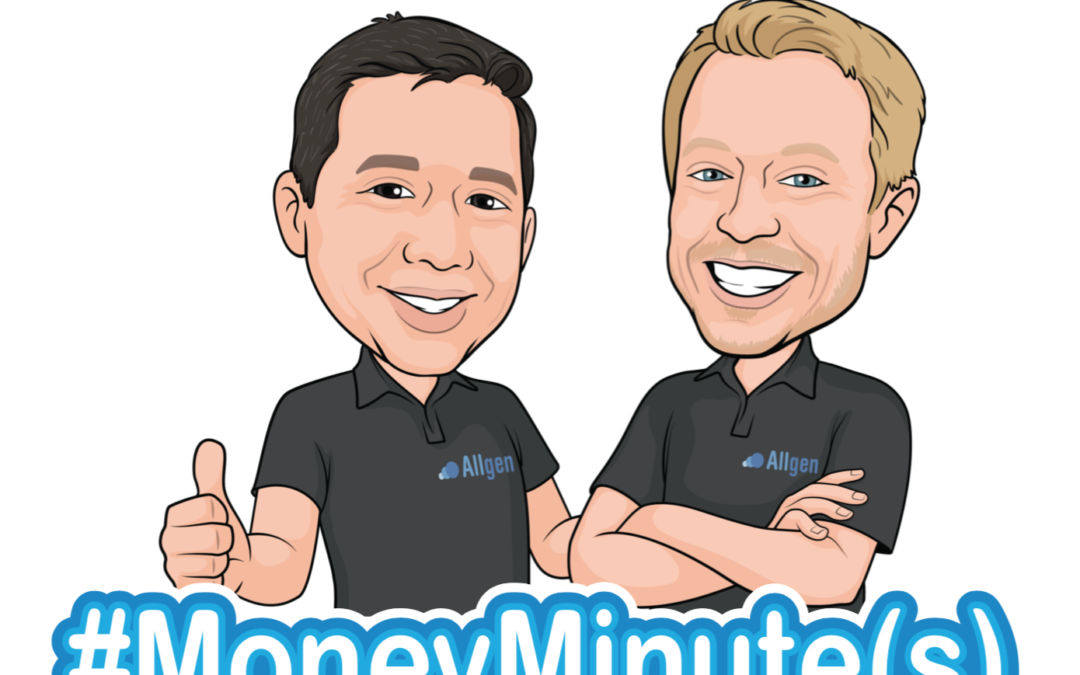Changing jobs is a common occurrence. But when you have a 401(k) with your old employer, you have to decide what you want to do with that money. Rolling it over into an IRA is a popular choice. With an IRA, there may be more investment options available to you than with a 401(k). But how do you actually rollover your old 401(k)?
Click here to go straight to the video.
Find Out Where Your Money Is Held
The first step is to figure out exactly where the funds in your 401(k) account are currently being held. To find out, look at your 401(k) statement, either online or on a paper statement if you receive them in the mail. On the statement, you’ll see a company name, such as Fidelity or Vanguard. This is the name of the company where your money is actually being held, called the custodian.
Open Up an IRA
The next step is to open up a new IRA account if you don’t already have one. You can go to a financial institution such as Charles Schwab or Fidelity and open an account. Make sure you get your account number. The company where you open up the IRA account does not need to be the same company that currently holds your 401(k) funds.
Contact the Company Holding Your 401(k)
Next, contact the company that is currently holding your 401(k) funds. If it’s a larger company, you should be able to call the phone number provided on your statement. The number may also be available via Google. You can then inform the company that you want to rollover your 401(k) into an IRA. They’ll take you through the necessary steps.
If it’s a smaller company or a government agency that holds your money, you may need to contact your former employer’s benefits department or HR department. There will be some paperwork that you will have to fill out to indicate that you want to rollover your 401(k) to your IRA.
Receive the Funds
The company holding your 401(k) funds will ask how you want to receive the funds. The easiest way to get the funds is to have the 401(k) custodian make out a check to the IRA custodian for your benefit. You’ll need to provide the account number of your IRA at that time. To learn more about custodians, click here.
The 401(k) custodian will then send out a check for the amount you had in your 401(k). The check may be sent to you, in which case you would need to send it to your IRA custodian for deposit into your IRA. Often, however, the check may be sent directly to the company holding your IRA.
Staying Compliant
The 401(k) custodian will ask if you have received a special tax notice. This special tax notice covers all of the different decisions you can make and the tax ramifications of each one. For compliance reasons, the custodian must ask if you have received it and cannot move forward with the rollover process until you have either confirmed receipt or waived receiving the special tax notice.
Rolling over 401(k) funds to an IRA bears no tax consequences because both accounts are qualified. Funds in either type of account won’t be taxed until they’re taken out of the account as a distribution. The original custodian will sell the funds in your 401(k) account and send the cash either to you or to the new custodian for deposit into your IRA.
Watch the video below, or visit our 401(k) Rollover FAQ page.
Don’t let current conditions keep you up at night. Obsessing over the market is what we do!
Give us a call if you have any questions. We’re here to serve.
Important Disclosures: The information provided here is of a general nature and is not intended to answer any individual’s financial questions. Do not rely on information presented herein to address your individual financial concerns. Your receipt of information from this material does not create a client relationship and the financial privileges inherent therein. If you have a financial question, you should consult an experienced financial advisor. Moreover, the hiring of a financial advisor is an important decision that should not be based solely upon blogs, articles, or advertisements. Before you hire a financial advisor, you should request information about the financial advisor’s qualifications and experiences. Past performance is no guarantee of future results. All expressions of opinion are subject to change without notice in reaction to shifting market conditions. Data contained herein from third party providers is obtained from what are considered reliable sources. However, its accuracy, completeness or reliability cannot be guaranteed. Examples provided are for illustrative (or “informational”) purposes only and not intended to be reflective of results you can expect to achieve. AllGen Financial Advisors, Inc. (AllGen) is an investment advisor registered with the SEC. AllGen does not provide personal financial advice via this material. The purpose of this material is limited to the dissemination of general information regarding the services offered by AllGen. The Disclosure Brochure, Form ADV Part II, which details business practices, services offered, and related fees of AllGen, is available upon request.







